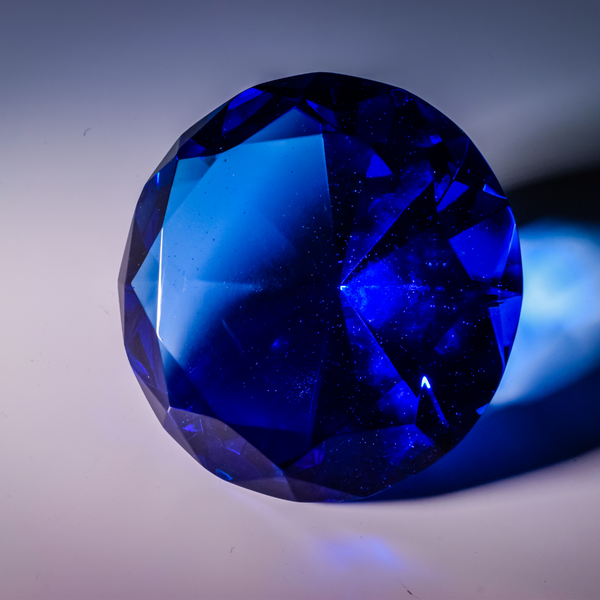Why should you buy certified gemstones?

Many gemstones for sale in the gemstone trade are licensed to ensure their authenticity. As a customer, you should be aware of the various types of certification and the various organizations that issue these certificates.
WHAT IS A GEMSTONE CERTIFICATE?
A gemstone certificate is a document issued by a gemological laboratory that has been licensed. Some gemstone certificates only confirm the weight and authenticity of the gemstone. Others, especially in the case of diamonds, will specify color and clarity grades. This certificate will include distinguishing marks as well as a "map" of the stone. Certificates do provide identifying details about your stone, which can help determine its rarity. Certificates, on the other hand, will not provide you with a numerical amount for the stone's "worth."
When buying a gemstone, certificates are not always present. (An inherited family gemstone, for example, may not have one.) If the customer requests it, credentials may be given at any time after the order. A trustworthy certification should be performed by a third party who is not involved in the transaction.
Why Buying Certified Gemstones Is Important
Glass, plastic, and synthetic gemstones abound on the market. The gemstone industry has suffered greatly as a result of this over the years. The availability of a wide range of accredited and checked gemstones adds to the buyer's faith.
It's better to start with certified gemstones if you're trying to buy a gemstone for the first time and don't know what any of the words mean. That way, you'll know that each stone has been thoroughly examined by experts (known as Gemologists) and is accurately represented. The availability of a wide range of certified gemstones adds to the buyer's faith.
Certifying Gemstones
Some gemstone buyers choose to purchase a certified gemstones for a variety of reasons. Most of the time, though, they want to buy a certified stone because of the assurance that comes with it. Certified Gemstones assures the customer that what they are purchasing is authentic. It's also very useful and makes the resale process much easier if they plan to sell the stone later.
If you’re not buying a Certified Gemstone, it's essential to understand your options for getting your new investment certified. There are several choices available when it comes to getting a certified gemstone. Some are far superior to others, so it's essential to weigh all of your choices. It would help if you also thought about how much certification would cost. You can pay more for a degree if you have more knowledge about it.
Different Kinds of Certification
Brief Reports - This is usually the most affordable form of report/certificate available. These will provide you with information on the stone's type, weight, height, shape, clarity, and color. There may also be a section for comments. The treatments the stone has undergone are unlikely to be included in the brief study. They will, however, almost always provide heating/treatments for Sapphires and Rubies. The report will be packaged in a credit card-sized plastic cover.
Brief Report with Photo - These would contain all of the details from the simple brief report, as well as a photo of the stone being accredited on the report itself, rather than on a separate sheet. Some laboratories that produce these reports include EMIL of Japan, BGL, and AIGS. They may have some limitations on the stones they can measure. They don't test quartz varieties very much.
Standard Reports - These reports are packaged in a sealed card/envelope that contains the gemstone. The back has a plastic cover that allows you to see the stone. Type of stone, weight, cut, size/measurements, colour, and a comment section are all included in these reports. Sapphire and ruby treatments are usually noted in the comments section.
Full Gemstone Report -This report will be in card form, printed on the original paper, laminated for safety, and will include the gemologist's signature. The type of stone, definition, size, shape, weight, color, clarity, proportion, finish grade, refractive index, specific gravity, variety & trade name, any treatments, and a picture of the gemstone are all included in this study.
Some laboratories will accept any stone, while others will have limits, such as not accepting Quartz or Pearl. Some of the major laboratories that deliver these types of certifications are GHI, BGL, AIGS, GIT, GRS, EGL, and GIA.
Other Important information
If you're buying a certified gemstone, make sure it was certified by a third party, not by the company you're buying from. It is not permissible in the gem trade to certify and then sell your own stones.
Many qualified gemologists can recognize certified gemstones, but it's still a good idea to get your stone certified by a gemological laboratory specializing in gemstone research. Gemstone laboratories will be able to afford the most up-to-date research facilities and will have a reputation to uphold.
Several laboratories worldwide can certify your stones, so you are not limited to the most well-known (GIA, EGL, etc.) However, there are advantages of getting them handled by these reputable firms. They also specialize and conduct cutting-edge testing, and they are the leaders in their field when it comes to treatments. They're also attempting to certify the gemstone's origin, though this isn't usually needed. It is a personal decision to get your stone approved. It is particularly recommended for stones that are valuable or rare. It does give you peace of mind that you're getting a good deal on a valuable stone, particularly if you're spending a lot of money.
Explore our certified gemstones collection here

